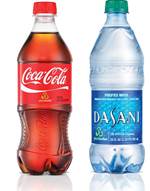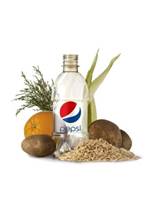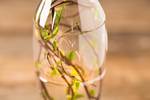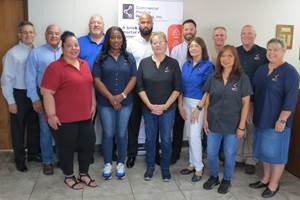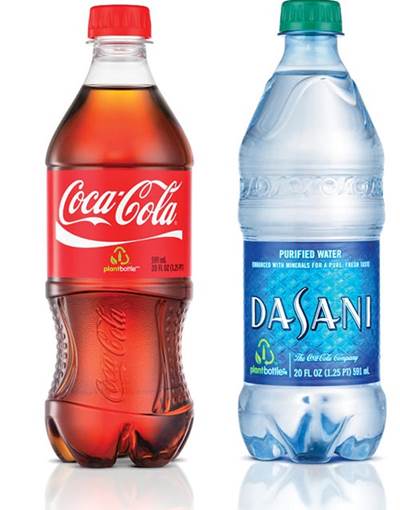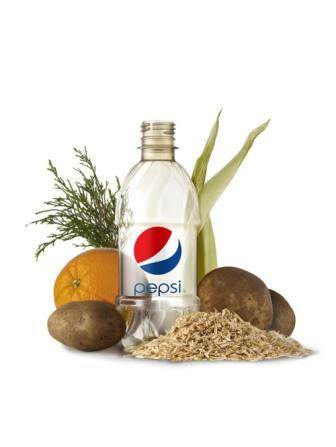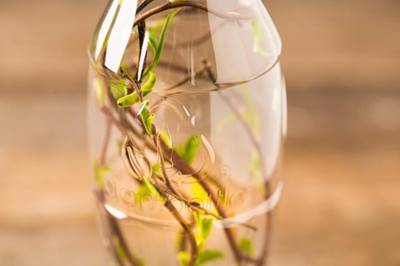100% Biobased PET Bottle Gets Closer to Commercialization
It’s not here quite yet, but ability to make both key PET precursor chemicals from plant-based sources is “ready for commercial scaling.”
It’s coming a little later than expected, but The Coca-Cola Company announced late last month that it is moving toward commercialization of PET beverage bottles based 100% on renewable plant sources (not including caps and labels), “using technologies that are now ready to be commercially scaled.” No actual introduction date was announced, but a limited run of 900 prototype bottles have been produced with all-biobased PET, or bPET, as Coca-Cola calls it.
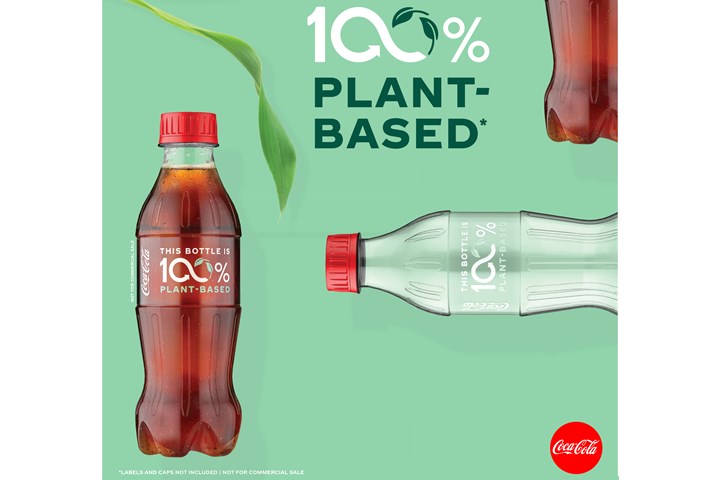
To date, the maximum biobased content in commercial PET bottles has been 30%, from monoethylene glycol (MEG) obtained from ethanol derived from plant sugar. The first commercial PET beverage bottle utilizing biobased MEG (bMEG) was Coca-Cola’s PlantBottle, launched in 2009. In 2011, Coca-Cola announced it had joined the race toward 100% bPET by funding two firms with different routes toward producing biobased paraxylene (bPX), the precursor for the remaining 70% of the PET polymer, purified terephthalic acid (PTA). By mid-2015, one of those two firms, Virent, Inc. of Madison, Wis., had advanced far enough that its catalytic bioconversion technology, then still at laboratory scale of development, was used to produce the first all-biobased PlantBottle prototype. At that time, Coca-Cola hoped to commercialize the bPET bottle by 2020.
Now, Virent’s technology for bPX has advanced to demonstration scale, the final step before commercial-scale production. Also said to be “ready for commercial scaling” is a new and reportedly more efficient process for making bMEG, co-developed and co-owned by Coca-Cola and Changchun Meihe, a Chinese licensor of biomass chemical conversion technologies. That technology eliminates the step of creating ethanol, simplifying the process and adding flexibility in feedstock choice. The current prototype bottles used both bMEG and bPTA made from corn sugar, but Coca-Cola aims to make commercial bottles entirely from second-generation biomass—i.e, nonfood plant material.
The new bMEG process was first validated at demonstration scale in 2017 and will power a full-scale biorefinery being built in Germany by Finnish forest-products company UPM. This plant will make bMEG from hardwood waste obtained from sawmills and other wood-industry side streams. The plant will start up in 2023, with a design capacity of 484 million lb/yr of bMEG and lignin-based functional fillers.
When might all-bPET bottles appear on store shelves? Ben Jordan, sr. director of environmental policy for Coca-Cola replied, “We expect UPM will be producing their next-generation bMEG commercially in 2023 and we’ll be following news from Virent on the licensing of their technology closely.”
To complete the supply chain for bPET, Coca-Cola is working with Alpek Polyester to utilize the plant-based precursor chemicals produced by the other partners.
As is already the case with PlantBottle technology, Coca-Cola says it will make its more advanced bPET technology available to other firms, now including direct competitors.
Coca-Cola has not been alone in the quest for bPET. Arch-rival PepsiCo actually announced a prototype all-bPET bottle in 2011 and expected to start pilot production in 2012. The company has been relatively quiet about this since then, though in 2018 it joined the NaturALL Bottle Alliance, a research consortium launched a year earlier by Nestlé Waters, Danone and California biomaterials company Origin Materials to develop a bPET bottle from biomass.
Related Content
Inside the Florida Recycler Taking on NPE’s 100% Scrap Reuse Goal
Hundreds of tons of demonstration products will be created this week. Commercial Plastics Recycling is striving to recycle ALL of it.
Read MoreHow to Optimize Color Evaluation of Recycled Plastics
The right color measurement instrument and good working methods will minimize variability in color evaluation of PCR.
Read MorePlastics Technology Year in Review: Your Favorite Reads of 2024
A year-end review of the top stories showcasing industry trends, advancements and expert insights. Revisit the articles that captured the attention of the plastics community.
Read MoreBreaking News From NPE2024
Here is a firsthand report of news in injection molding, extrusion, blow molding and recycling not previously covered.
Read MoreRead Next
Coca-Cola Joins Race for 100% Biobased PET Bottle
One of the more unusual aspects of the sustainability drive in the plastics industry (see NPE Sustainability article this month) is the way giant beverage companies are taking an active role in spurring development of biobased plastics for bottles.
Read MorePepsi Develops First 100% Biobased PET Bottle
WEB EXCLUSIVE: PepsiCo, Purchase, N.Y., says it has developed the world’s first PET bottle made entirely from plant-based, renewable resources.
Read MoreCoca-Cola Debuts First 100% Biobased PET Bottle
And the winner is....Coca-Cola appears ahead of the game in the race towards an all-biobased PET beverage bottle.
Read More
